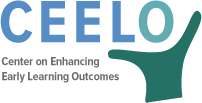Current understanding of child development acknowledges that children do not grow in a vacuum; rather, they are shaped significantly by their environment. Constructivist approaches acknowledge the interactive role between nature and nurture. The most influential agents in a child’s development are family and community. Early education leaders are most effective when they understand the diverse dynamics of family development and community conditions.
Types of Families – Effective leaders recognize and incorporate the changing faces of family and parental roles, designing services which are best suited to every family’s strengths, needs, interests, and goals.
Resources
- State Approaches to Family Engagement in Pre-K Programs (Dahlin, 2016)
- Family Engagement Toolkit (BUILD Initiative)
- Learning About Families for Principals (BUILD Initiative)
- Parent, Family, and Community Engagement Framework (Head Start)
- Engaging Diverse Families: Principles, Programs and Tools (NAEYC)
Activities
- Teaching Tolerance Activity Search (Southern Poverty Law Center)
- Families Today (Alabama Cooperative Extension Service)
Race, Culture, Economics/Poverty, & Community – As Bronfenbrenner’s Ecological Model of Human Development suggests, children develop within increasingly broader systems from families to communities within a larger society, each possessing specific beliefs, expectations, rules, and environments. Societal influences and community conditions powerfully shape children’s experiences for better and worse. In American society, factors such as race, heritage, economic status, and residence significantly influence children’s opportunities and challenges to realize full potential which show up in part as the achievement gap.
Resources
- Anti-bias Framework
- OECD Starting Strong III Toolbox
- Eager to learn: Educating our preschoolers: The importance of individual and cultural variations
- The pedagogy of poverty versus good teaching (Haberman, 1991)
- Payne, R. (2013). A framework for understanding poverty: A cognitive approach. 5th Highlands, TX: aha!Process, Inc. Available through https://www.amazon.com/Framework-Understanding-Poverty-Cognitive-Approach/dp/1938248015
- Iowa Early Childhood Stakeholders’ Alliance Cultural Competencies
- Privilege: Unpacking the Invisible Knapsack (McIntosh)
Activities
- Simon Dic’e (Simon Says in Spanish or other foreign language)
- Cardboard Box Exercise
- How Privileged Are You? Online Quiz
- Hidden Rules Among Classes
- Cultural Bias Checklist
- Privilege: Unpacking the Invisible Knapsack (McIntosh)
- Privilege Points Questionnaire
